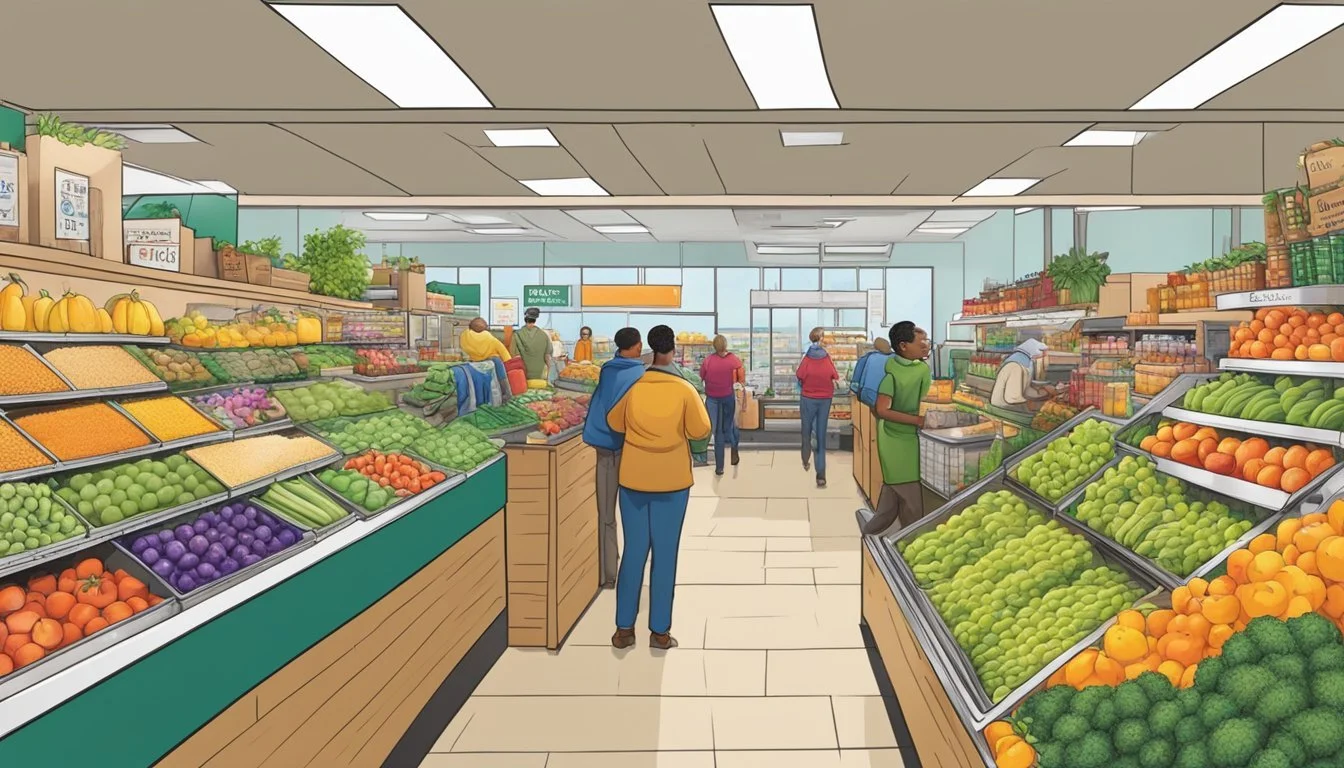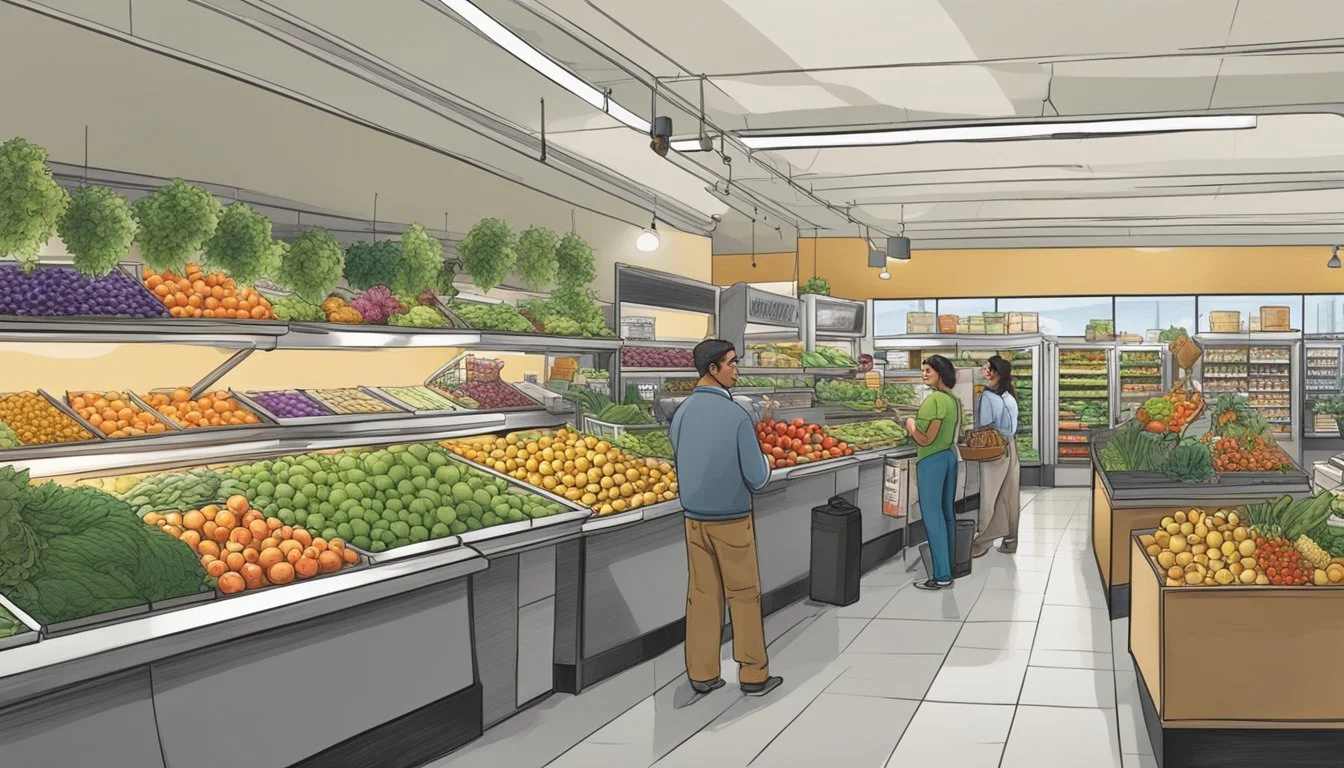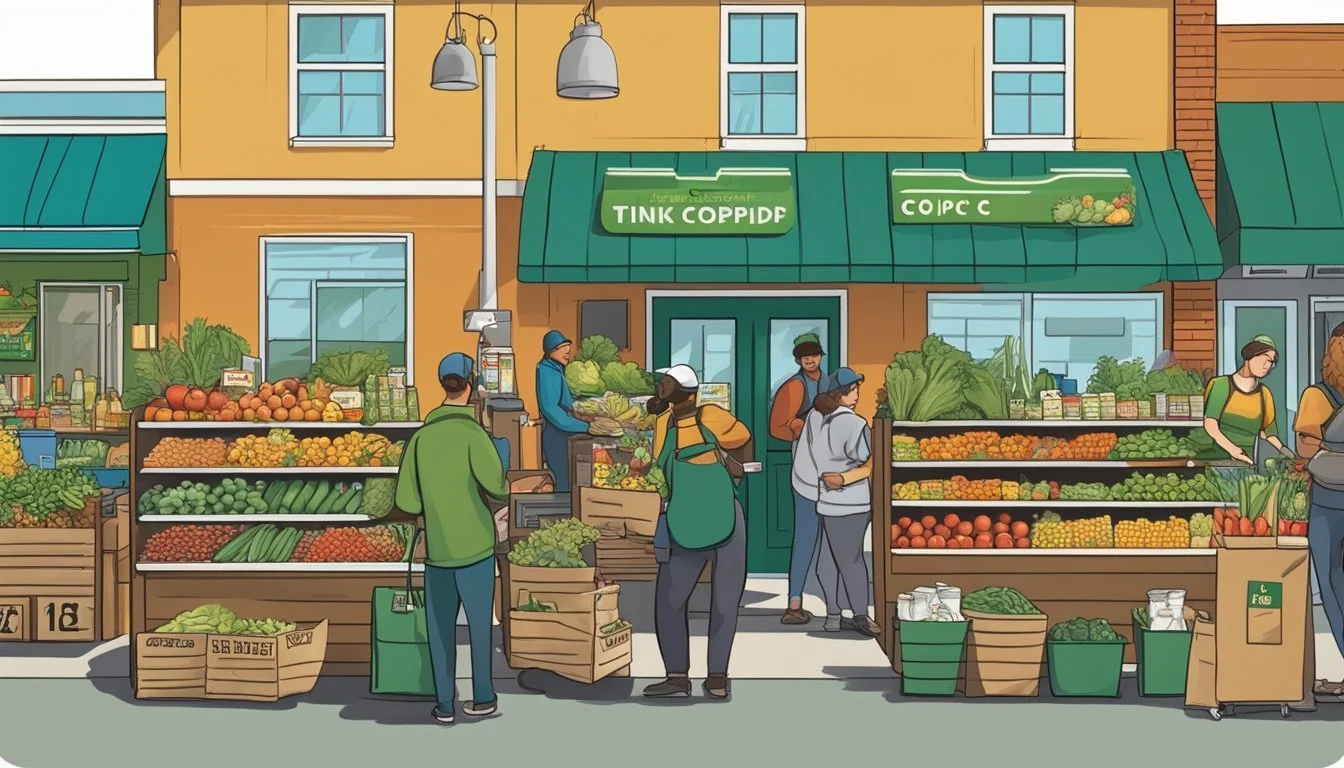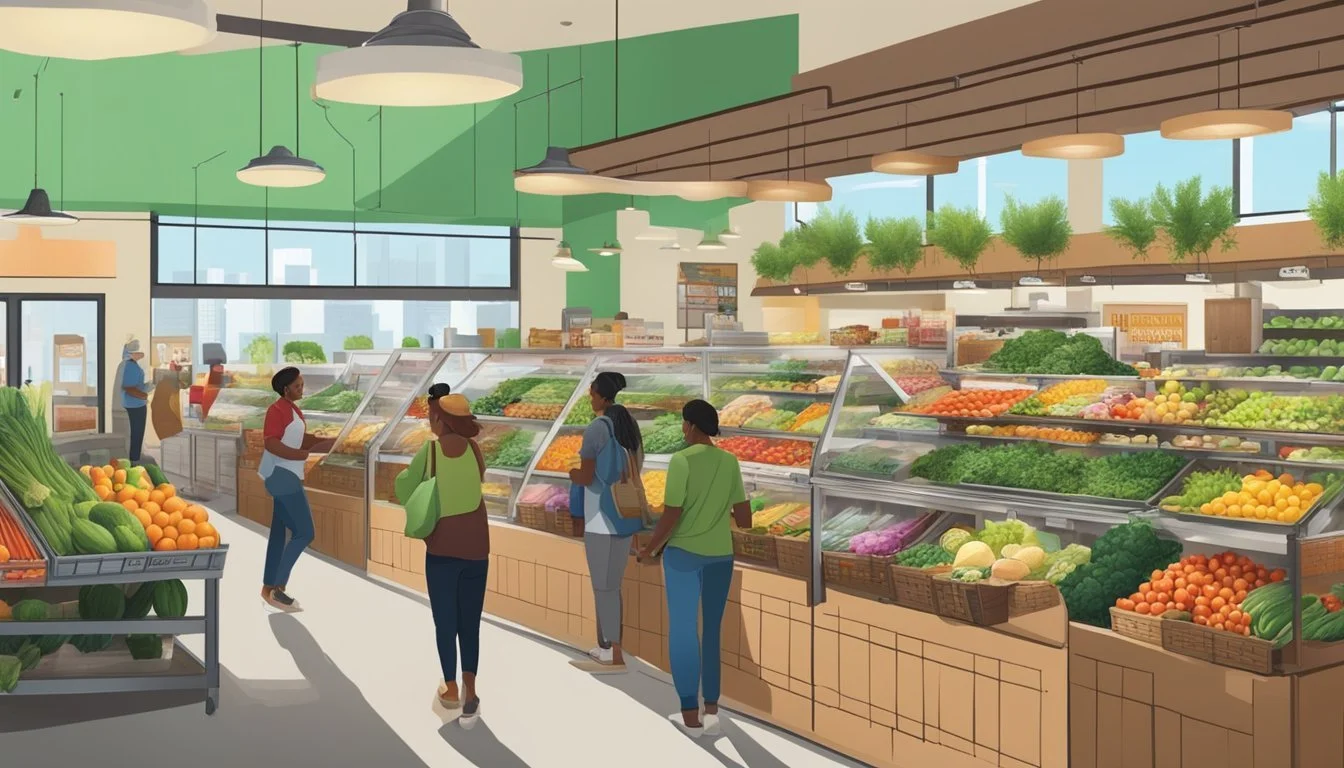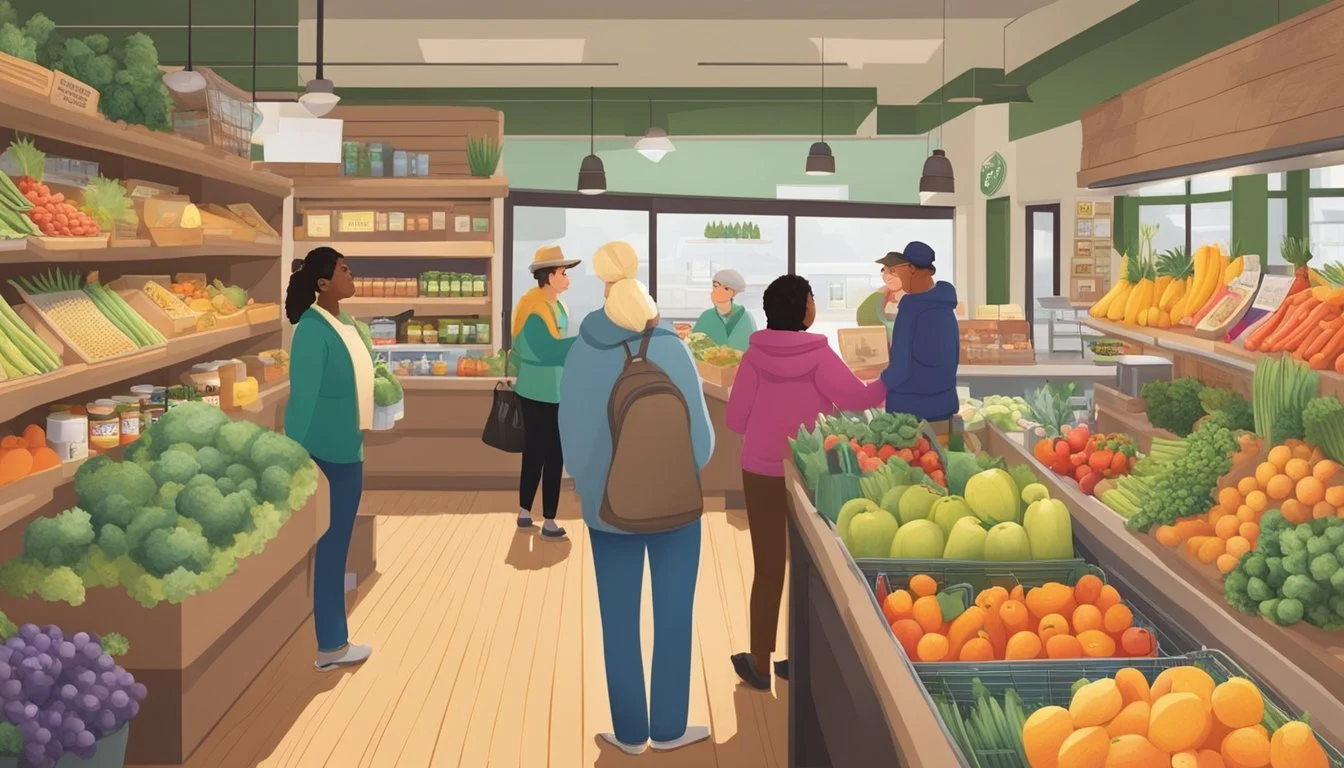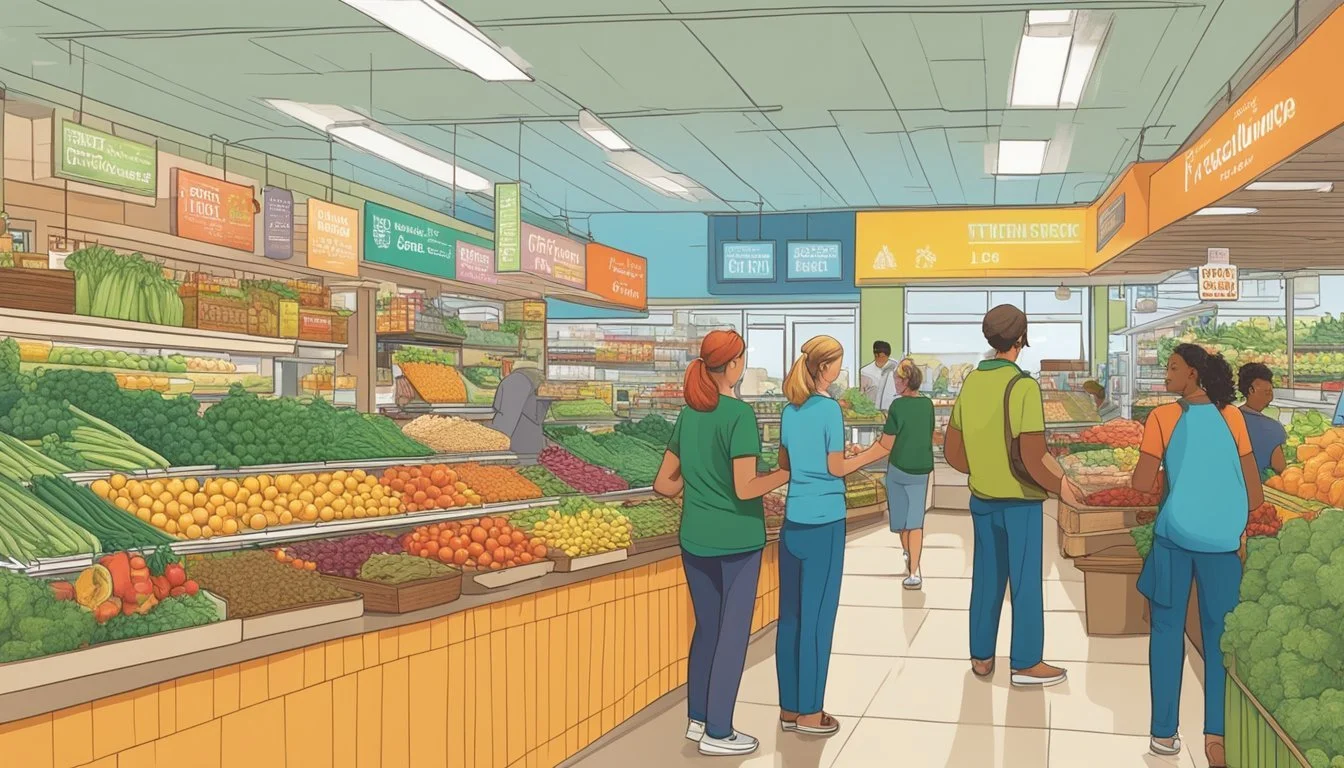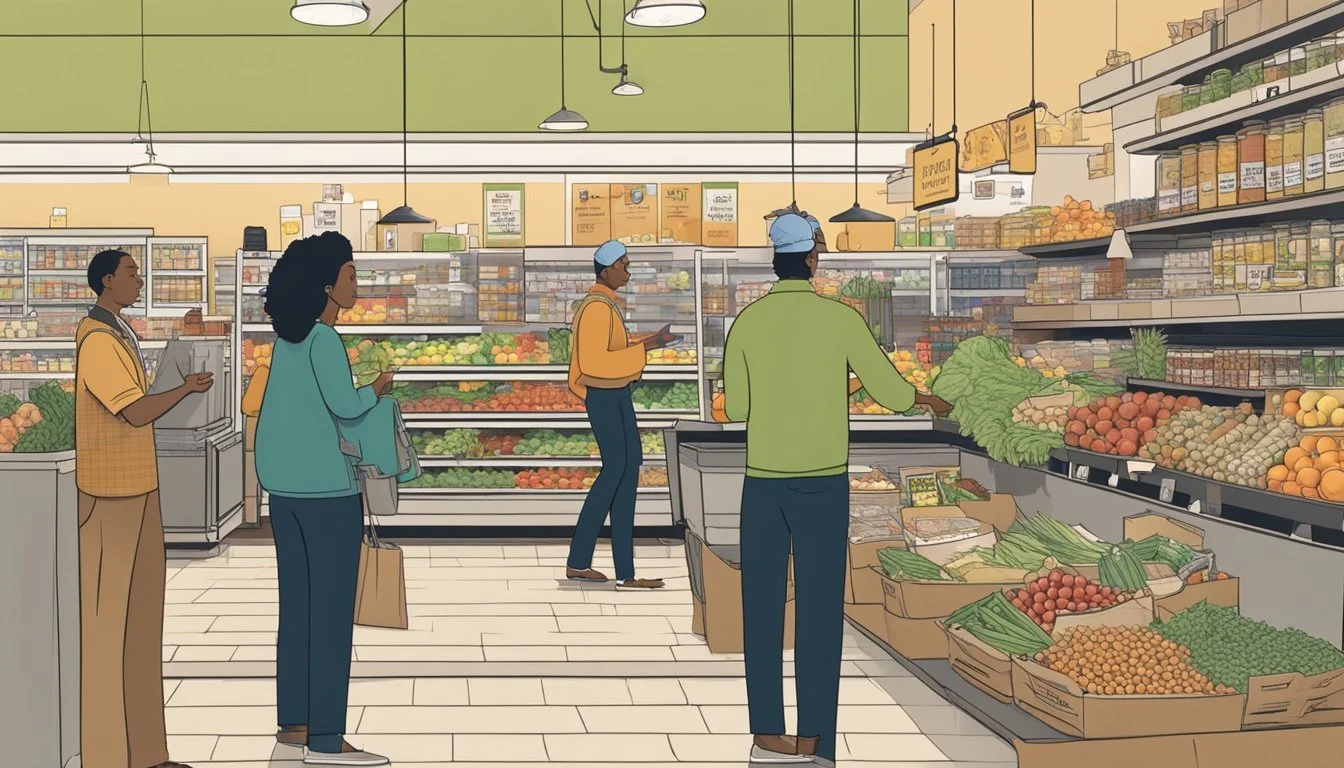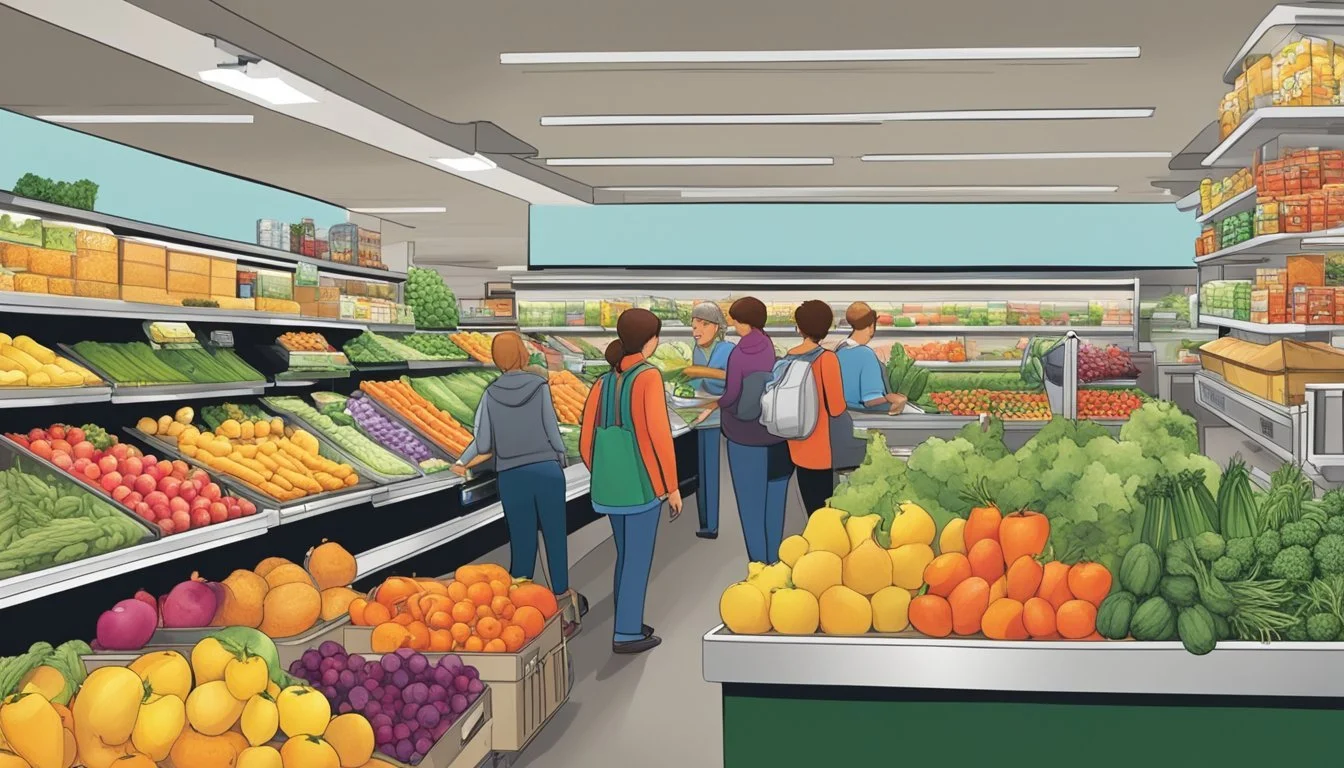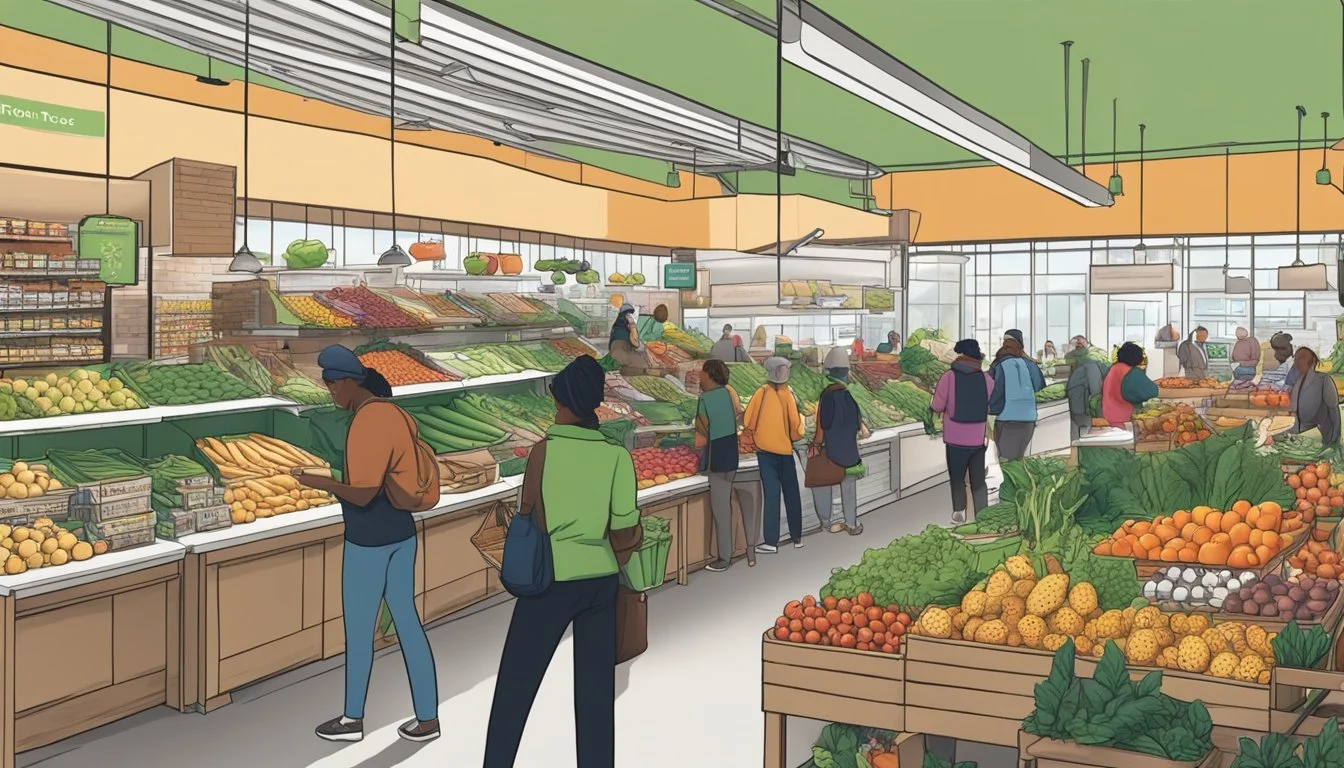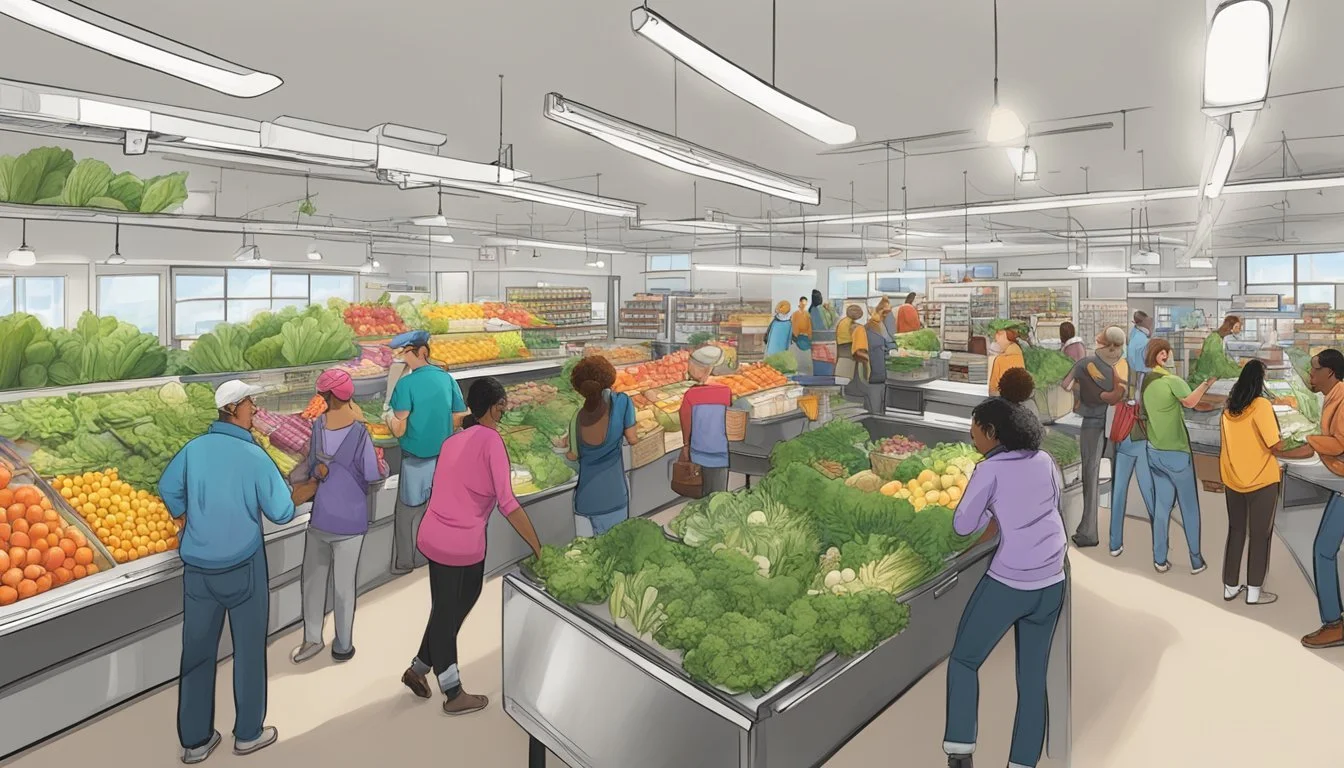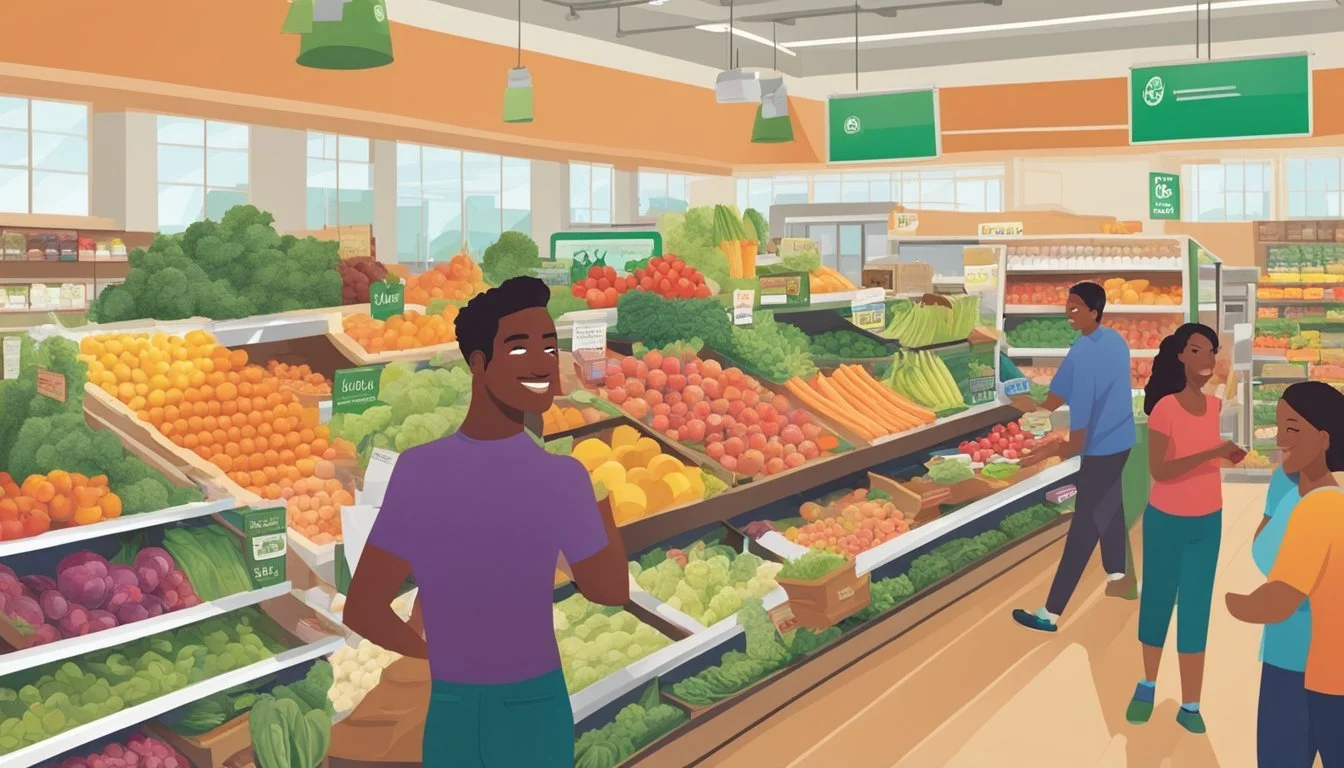Guide to Food Co-Ops in Milwaukee, WI
Your Essential Resource for Local, Collaborative Shopping
Milwaukee, known for its vibrant community and cultural diversity, offers a selection of local food co-ops that stand out for their commitment to sustainable and responsibly-sourced products. These member-owned cooperatives are not just places to purchase groceries; they are central to fostering a sense of community among Milwaukee residents. They prioritize local, organic produce, catering to an audience that values health and environmental stewardship.
Food co-ops in Milwaukee have a storied history and continue to thrive as hubs where locals can obtain fresh, organic, and locally sourced food. The co-op culture within the city extends beyond just retail operations—it encapsulates a movement geared towards conscientious consumerism and collective ownership. The presence of co-ops like Riverwest Co-op and Outpost Natural Foods, which have been serving the community for years, underscores Milwaukee's dedication to inclusive and health-conscious food alternatives.
The Role of Food Co-Ops in Local Communities
Food cooperatives play a significant role in supporting local communities by fostering economic vitality and practicing inclusivity and democracy.
Community Impact
Food co-ops in Milwaukee enhance the local economy by purchasing from local farms and businesses, injecting revenue directly into the community they serve. On average, co-ops work with 281 local producers, selling substantial amounts of locally-sourced products, which bolsters the presence and success of these local businesses.
Voluntary and Open Membership
Food co-ops are founded on the principle of voluntary and open membership, ensuring that anyone interested can join without discrimination. This inclusive approach helps build a diverse community where each member has an economic interest and a sense of belonging, regardless of their personal background.
Democratic Member Control
Co-ops are democratically controlled, giving members equal voting rights—one member, one vote. This fosters a community-oriented governance structure where decisions reflect the collective interests of the members, not just a group of investors. Members elect a board of directors from within their ranks to oversee the co-op, ensuring that community needs and values directly guide co-op policies and practices.
Benefits of Food Co-Ops
Food co-ops in Milwaukee offer a wealth of benefits, underscored by their commitment to environmental sustainability and the availability of nutritious food options. They serve as pivotal access points for organic and fresh produce within the local community.
Sustainable Practices
Milwaukee food co-ops operate with environmental sustainability at their core. They integrate sustainable practices in various aspects:
Local Sourcing: Reduces carbon footprint by minimizing transportation distances.
Eco-friendly Packaging: Prioritizes recyclable and biodegradable materials to reduce waste.
Community Engagement: Organizes volunteer initiatives focused on local environmental betterment.
Nutritious Food Options
These cooperatives provide an array of nutritious food choices that cater to the health-conscious consumer:
Organic Produce: Availability of pesticide-free fruits and vegetables.
Freshness: The close relationship with local farmers ensures a regular supply of fresh products.
Educational Outreach: They help to raise awareness around healthy eating by offering resources and programs.
Food co-ops not only bolster physical health but also contribute to the well-being of the planet by fostering sustainable consumer habits.
Understanding Co-Op Ownership
Food cooperatives in Milwaukee, WI, notably those like Outpost Natural Foods, function under an ownership model distinctly different from conventional grocery stores. Owners, also referred to as members, play a pivotal role in shaping the store's policies, product selections, and overall direction.
Member Benefits
Owners of a food co-op are not merely customers; they are integral parts of the cooperative's structure. They enjoy several benefits:
Democratic Management: Owners get a voice in co-op matters. Each owner has one vote and can participate in elections for the board of directors or vote on significant decisions.
Financial Returns: Depending on the co-op's profitability and bylaws, owners may receive dividends in the form of patronage refunds proportional to their purchases.
Community Connection: Owners contribute to a local, equitable food system and often receive discounts on classes, events, and products.
Cooperative Principles
Food co-ops in Milwaukee operate under a set of guiding principles that align with the broader cooperative movement:
Voluntary and Open Membership: Open to all without gender, social, racial, political, or religious discrimination.
Democratic Member Control: Operated by members who actively participate in setting policies and making decisions.
Member Economic Participation: Members contribute equitably to, and democratically control, the capital of their cooperative.
Autonomy and Independence: Co-ops are autonomous, self-help organizations controlled by their members.
Education, Training, and Information: Co-ops provide education and training for members, elected representatives, managers, and employees.
Cooperation among Cooperatives: Co-ops serve their members most effectively and strengthen the cooperative movement by working together.
Concern for Community: Co-ops work for the sustainable development of their communities through policies approved by their members.
An additional eighth principle—diversity, equity, and inclusion—is often emphasized, reflecting a commitment to engage everyone in governance and representation.
Owners in Milwaukee's food co-ops are central to sustaining these principles while reaping the associated benefits.
Milwaukee's Food Co-Op Landscape
Milwaukee's food co-op scene is marked by a handful of established co-ops that emphasize organic and locally sourced products. These member-owned stores contribute to the community's health, economy, and sustainability.
Featured Food Co-Ops in Milwaukee
Riverwest Co-op operates as a cornerstone of the Riverwest neighborhood, functioning since 2001. This volunteer-run, member-owned store is renowned for its produce, bulk foods, and fresh Grab-n-Go options.
Outpost Natural Foods stands out as a prominent cooperative in Milwaukee. Since 1970, the store has been committed to offering a wide range of natural and organic foods, illustrating a business model rooted in cooperative values.
Store Locations
Riverwest Co-op: Nestled in the heart of the vibrant Riverwest neighborhood.
Outpost Natural Foods: Multiple locations across the metro Milwaukee area, ensuring wide accessibility to quality organic goods.
Each store serves as a hub for not only groceries but also for community engagement and support of local producers.
Shopping at Food Co-Ops
Food co-ops in Milwaukee, WI, offer a unique shopping experience for those seeking natural and organic food options. From a diverse range of groceries to specialty items, these member-owned establishments prioritize fresh, wholesome products.
Product Selection
At Milwaukee food co-ops, shoppers can expect a wide array of products that accommodate various dietary preferences and needs. The inventory typically includes:
Natural Foods: A variety of unprocessed and minimally processed foods.
Groceries: Everyday essentials like dairy, eggs, snacks, and more.
Bulk Items: Purchasing options that reduce waste and allow for quantity control, including grains, nuts, and spices.
Fresh Produce and Organic Foods
One of the pillars of food co-ops is their commitment to providing access to fresh produce and organic foods. Shoppers can find:
Fresh Produce: Locally-sourced fruits and vegetables that support area farmers.
Organic Foods: Items certified organic, free from synthetic pesticides and fertilizers, ensuring cleaner and more sustainable consumption.
Financial Aspects of Food Co-Ops
Food cooperatives in Milwaukee implement financial strategies to ensure affordability for members and sustain profits that support business growth. Their financial framework includes affordable pricing models and robust fundraising efforts for revenue generation.
Affordability and Pricing
Food Co-ops strive to make healthy food more accessible to the Milwaukee community by maintaining affordability. They often employ a tiered pricing structure that allows members to purchase goods at a discounted rate, while non-members may pay standard retail prices. This incentivizes membership and community investment, while also adhering to cooperative principles of open and voluntary membership.
Member Pricing: Reduced prices for co-op members.
Non-Member Pricing: Regular prices that include a minimal markup to sustain operations.
Fundraising and Revenue
To finance the startup and operational costs, food co-ops engage in several fundraising methods. Member equity is a common approach where members invest directly in the co-op, often through purchasing a share that contributes to the co-op's capital fund.
Member Shares: Capital raised through member investments.
Grants and Donations: Additional funding sourced from community grants and individual donations.
Profit for food co-ops is primarily reinvested back into the business or distributed among members in the form of patronage dividends, depending on the co-op’s financial health and governance decisions. These profits help in maintaining the cycle of reinvestment toward better services and community development initiatives.
Participating in Food Co-Ops
Food cooperatives in Milwaukee, WI, offer individuals a chance to engage directly with their food sources and contribute to the community’s well-being. Through volunteer efforts and governance participation, members play a crucial role in the co-op’s success.
Volunteer Opportunities
Volunteer opportunities at the Riverwest Co-op enable community members to be involved in daily operations. Volunteers can contribute by working in the store, helping with food preparation in the café, or participating in special events. In return, they often receive benefits such as discounts on products or classes offered by the co-op.
Typical volunteer roles include:
Stocking shelves
Cashiering
Food preparation
Cleaning
Board of Directors and Governance
The governance of a food co-op like Outpost Natural Foods is overseen by a Board of Directors elected from the co-op's membership. This Board is responsible for setting policies, ensuring financial stability, and guiding the co-op towards fulfilling its mission to serve its members and community.
The Board typically includes roles such as:
President
Vice President
Secretary
Treasurer
Board meetings are usually open to all members, providing a transparent view of decision-making processes and offering a forum for member input.
Community Events and Education
Food co-ops in Milwaukee, WI, stand as platforms for not only accessing fresh, locally-sourced produce but also as educational hubs for the community. They prioritize knowledge-sharing through various events and learning opportunities, reflecting their commitment to cooperative principles and community development.
Riverwest Co-op regularly holds events that intend to educate members and non-members alike on the importance of sustainable living and local economies. It hosts:
Workshops: Sessions range from food preparation to understanding the principles of cooperatives.
Cooking Classes: Aimed to foster skills in preparing healthy, affordable meals using co-op products.
Other co-ops engage in similar efforts, often providing:
Speaker Series: Experts are invited to talk on topics such as organic farming, food justice, and environmental sustainability.
Community Meetings: They are a transparent avenue for discussion on co-op related developments and decision-making processes.
LocalHarvest, an advocate for local food movements, lists events that are crucial for both consumer education and the cultivation of a robust community around food co-ops. Examples include:
Farm Tours: These events offer a firsthand look at where and how local produce is grown.
Seasonal Celebrations: They highlight local harvests and create awareness around seasonal eating.
The engagement in these events is telling of a co-op's role beyond a food retailer to being an intrinsic part of Madison's community education and outreach. It is through these activities that food co-ops serve as cornerstones of not only commerce but also connection and learning in Milwaukee.
Challenges Facing Food Co-Ops
Food co-ops in Milwaukee, like those across the nation, face a series of challenges in a rapidly evolving retail food sector. Among the primary challenges they confront is financial sustainability. Revenue generation must outpace the costs associated with sourcing products, paying competitive wages, securing facilities, and other operational expenses. The demand to provide livable wages and benefits for workers adds further financial strain, requiring careful balancing against the need for affordability for consumers.
Another significant challenge is market competition. With the presence of larger grocery chains and online food delivery services, food co-ops must differentiate themselves to attract and maintain a customer base. They do this by emphasizing local, organic, and sustainable products, but that often comes with higher prices that may not be feasible for all consumers.
The complexity of meeting regulatory requirements also poses a challenge. Food co-ops must navigate local, state, and federal regulations concerning health, safety, and business operations—a strenuous task for entities that often have less administrative bandwidth than larger companies.
Finally, ensuring accessibility and community outreach is vital but challenging. Food co-ops aim to serve diverse communities and often endeavor to establish themselves in food deserts where fresh, healthy foods are scarce. However, the tactical and logistical undertakings of these initiatives are non-trivial.
Challenge Specific Issue Faced by Food Co-Ops Financial Sustainability Balancing costs with the need to provide value and fair compensation. Market Competition Differentiating from larger stores and online services in a meaningful way. Regulatory Compliance Adhering to a complex web of health and business regulations. Community Accessibility Reaching diverse communities and operating in food deserts efficiently.
These challenges require strategic planning, innovative thinking, and a strong connection with the community to turn obstacles into opportunities for growth and increased impact.
Future Perspectives
The landscape of food co-ops in Milwaukee is set to embrace both growth and challenges in the coming years. Food co-ops like Outpost and Riverwest Co-op have already established themselves as central fixtures in the community, providing access to healthy and sustainable foods.
Planning is critical as these co-ops continue to develop. They must anticipate the evolving needs of their members and the wider community. This includes considering:
Expansion of services and locations to reach a broader demographic
Integration of the latest technology for improved consumer experience
Future prospects for Milwaukee food co-ops involve strengthening the local food system and contributing to the city's economic vitality. Co-ops may explore:
Collaborative ventures with local farmers and producers
Initiatives to educate consumers about the importance of sustainable food practices
Sustainability is at the core of these food co-ops' missions, with ongoing efforts to:
Minimize environmental impact through green practices
Carry a wide array of fair trade and organic products
Foster community engagement on environmental issues
Co-ops are expected to further embed sustainable practices into their operations, reinforcing their role in Milwaukee's movement towards a more resilient food ecosystem. With strategic planning, a steadfast commitment to sustainability, and innovative community engagement, food co-ops in Milwaukee are poised for a prosperous and impactful future.

